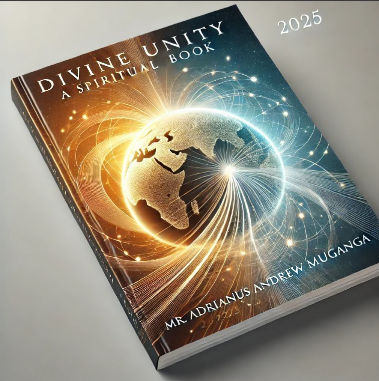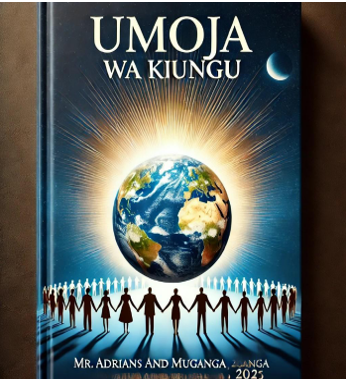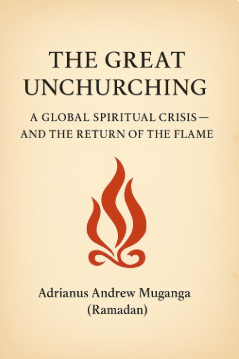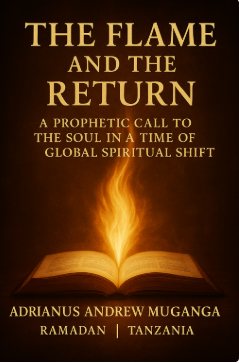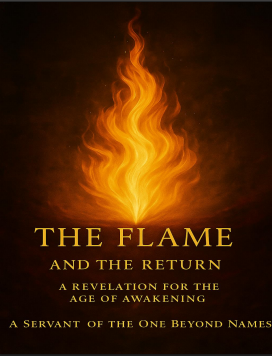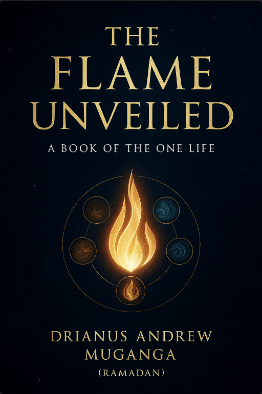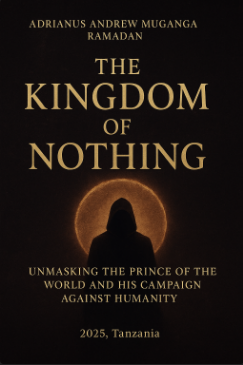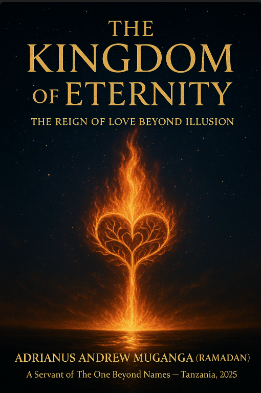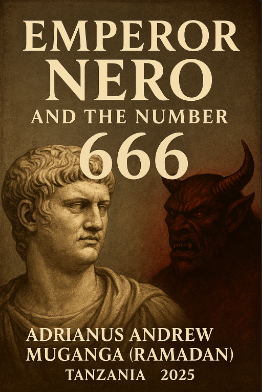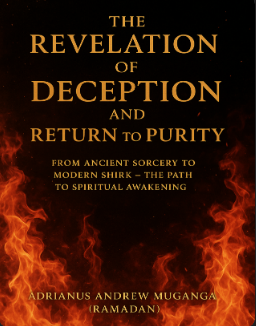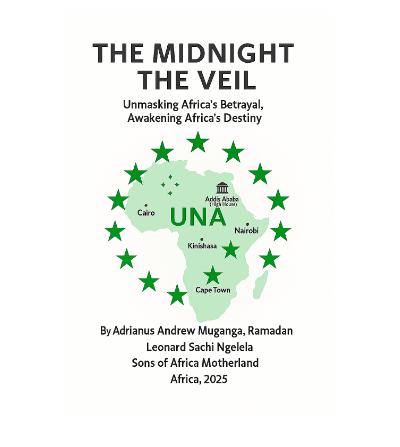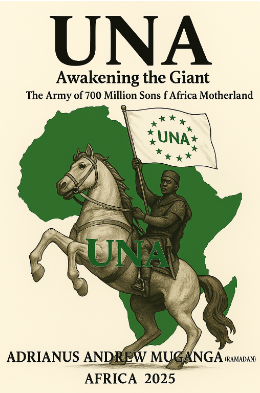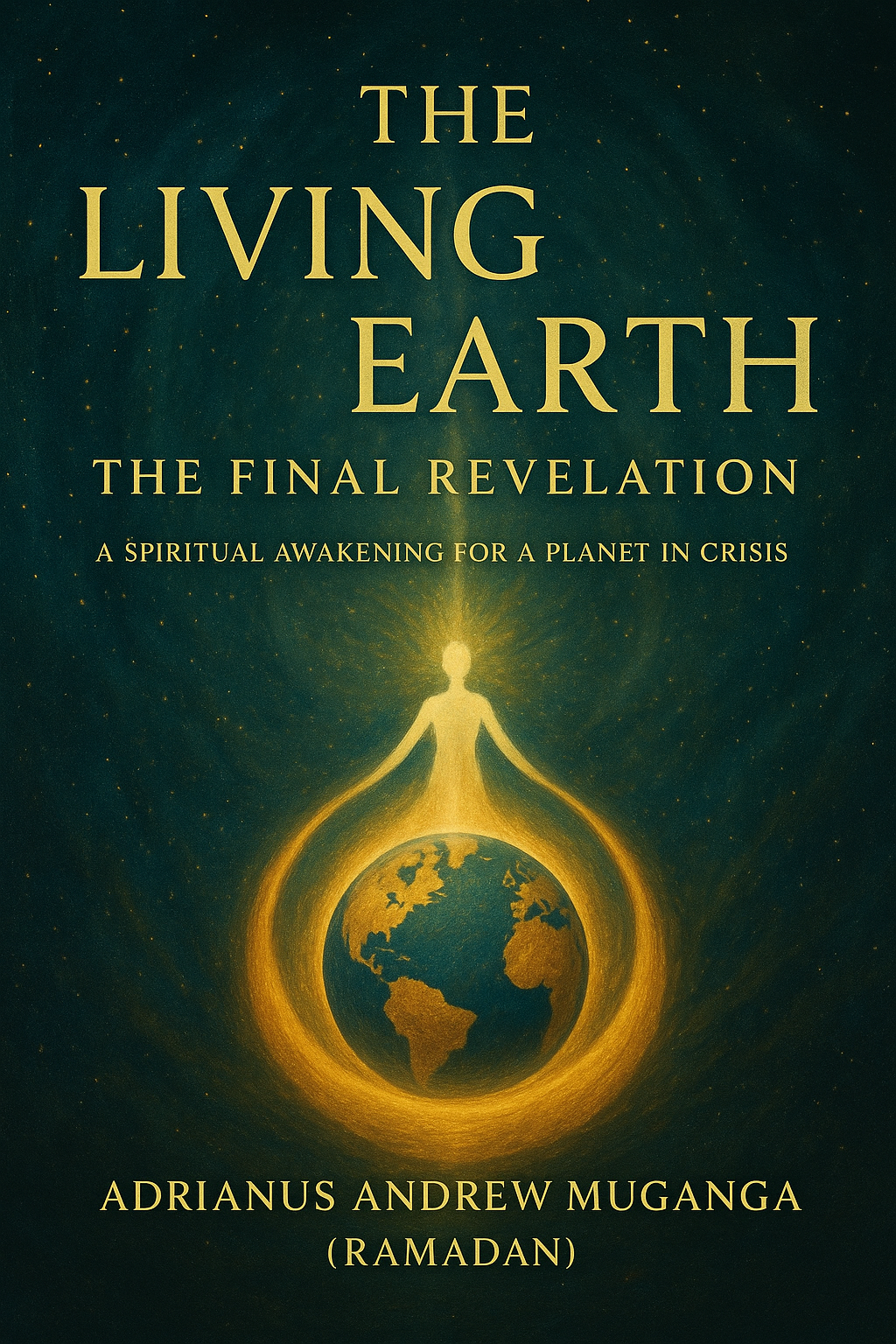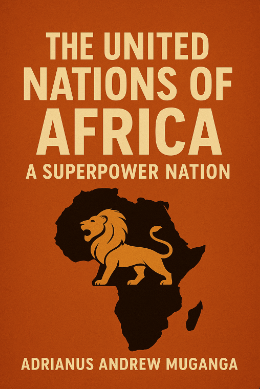
The United Nations of Africa
Subtitle: The Rise Of One Africa, One Voice, One Destiny
Author: Adrianus Muganga
The United Nations of Africa: The Rise of One Africa, One Voice, One Destiny by Adrianus Andrew Muganga (Ramadan) is a bold manifesto and roadmap for African unity. From the Berlin Conference of 1884–1885, which divided Africa into 55 artificial states, to today’s struggles with neocolonialism and dependency, the book traces the wounds that continue to weaken the continent. Yet within these wounds lies Africa’s greatest possibility: unity. The author proposes the creation of the United Nations of Africa (UNA) — one parliament, one market, one defense system, one passport, and one currency. Drawing on the vision of Pan-African leaders like Nkrumah, Sankara, and Mandela, the book blends history, politics, and spirituality to show how unity is not just a dream but a survival blueprint. This is more than a book; it is a fire to awaken Africa’s youth, leaders, and people. One Africa. One Voice. One Destiny.
Keywords for this book
You can only order 1 ebook at a time
Book summary
The United Nations of Africa: The Rise of One Africa, One Voice, One Destiny By Adrianus Andrew Muganga (Ramadan) Africa is the richest continent on earth in land, culture, and people, yet it remains the most divided. From the Berlin Conference of 1884–1885, where European powers carved Africa into 55 artificial states, to modern neocolonial exploitation, the continent’s destiny has long been shaped by others. Today, Africa stands at a crossroads: either remain fragmented and vulnerable, or unite and rise as a global superpower. This book is both a manifesto and a roadmap. It does not simply analyze the past or critique the present; it offers a blueprint for the future: the creation of a United Nations of Africa (UNA). Through one parliament, one market, one defense system, one passport, and one currency, Africa can transform its wounds of division into the foundation of its rebirth. Part I — The Wound and the Dream The first section revisits the Berlin Conference, where Europe redrew Africa’s destiny without a single African voice at the table. Borders were drawn with rulers across deserts, rivers, and kingdoms, dividing families, splitting ethnic groups, and forcing rivals together under artificial flags. These borders became prisons of identity, fueling conflicts, tribalism, and economic weakness. Independence in the mid-20th century brought hope, but not full freedom. Africans lowered colonial flags and raised their own, yet the structures of exploitation remained. Railways still led to ports for export, not to towns for connection. Economies continued to serve foreign markets. The newly born states celebrated sovereignty, but beneath the banners lay the same colonial design. The African Union (AU), formed in 2001, represented progress, but its power remains limited. With 55 parliaments, 55 armies, and 55 currencies, Africa speaks in echoes instead of thunder. The AU is a union of leaders, not of peoples. It manages cooperation but cannot enforce unity. The dream of Pan-Africanists like Nkrumah and Sankara is still incomplete. Yet, even in division, a deeper truth endures: Africa is one. Shared culture, spirituality, and history remind us that the continent is more than its borders. The dream of unity—long delayed—remains Africa’s greatest hope. Part II — The Power of Unity This section outlines the pillars of the United Nations of Africa (UNA), showing how unity translates into real power: One Parliament: A continental legislature where Africans speak with a single voice on global issues, replacing 55 scattered parliaments with one house of the people. One Market: By fully implementing the African Continental Free Trade Area (AfCFTA), Africa can boost intra-African trade, add value to its resources, and reduce dependency on foreign economies. One Defense: Instead of 55 fragmented armies, Africa can form a united shield to secure its sovereignty, end reliance on foreign military bases, and protect its people from terrorism and coups. One Passport: Free movement of Africans across the continent, ending the humiliation of visas and artificial restrictions, and opening opportunities for youth, workers, and entrepreneurs. One Currency: A single African currency and central bank to strengthen financial independence, stop capital flight, and ensure that Africa’s wealth circulates within Africa. Unity is not a poetic dream but a strategic necessity. The world respects blocs—like the United States, the European Union, and China—not fragmented states. Africa, with its resources, land, and youthful population, has the potential to surpass them all, but only if it acts as one. Part III — Beyond Superpower Unity is not only about competing with other powers—it is about redefining leadership for humanity. This section explores Africa’s deeper strengths: UNA vs USA, EU, Russia, China: Africa as a global power equal to or greater than today’s giants. Youth as the Engine: With over 60% of the population under 25, Africa’s youth are the world’s largest pool of innovators, creators, and dreamers. They are the beating heart of the future. Spiritual Unity: Beyond black and white, beyond tribe and religion, Africa embodies the truth of humanity as one family—an identity rooted in divine design and ancestral wisdom. Mother of Civilization: Africa gave the world its first kingdoms, sciences, and cultures. In the 21st century, it can lead again, not just as the cradle of humanity, but as its future. This vision is not about dominance, but about balance, justice, and human progress. A United Africa would not replicate colonial empires but would offer the world a new model of cooperation, equality, and shared destiny. Part IV — The Path Forward Dreams must become blueprints. This section presents the steps toward UNA: From AU → Confederation → Federation: A staged transition, beginning with stronger continental institutions, leading to a political federation under one constitution. Overcoming Challenges: Tribalism, corruption, and neocolonial manipulation remain barriers. These must be confronted through education, transparency, and collective resolve. Final Vision: Africa as a superpower nation—self-reliant, sovereign, and respected globally. Manifesto: A call to Africans everywhere to join in this mission. The UNA is not only a political project but a spiritual rebirth. The book concludes with pledges, manifestos, and a call to action. Readers are reminded that unity is not for leaders alone but for every citizen, every youth, every dreamer. Why This Book Matters The United Nations of Africa is not just another book on politics or history. It is a call to arms for the spirit. It argues that: Division is death; unity is life. Africa’s resources, if managed collectively, would end poverty and dependency. The world has seen Africa as a victim; it must now see Africa as a leader. The time for waiting is over. The giant must rise. Muganga (Ramadan) writes with urgency, conviction, and fire. He blends historical facts with visionary prose, political analysis with spiritual reflection, and strategy with inspiration. His message is simple but profound: “Africa must unite or perish.” Conclusion At its heart, this book is a fire to awaken Africa. It tells the story of a continent wounded but unbroken, divided but destined to unite. It honors the sacrifices of Pan-African heroes, while charging today’s generation with the responsibility of carrying their dream forward. The United Nations of Africa is not a distant fantasy. It is a survival blueprint, a necessity, and an inevitable destiny. The youth of Africa, the mothers and fathers, the leaders and thinkers—all are called to join in building this vision. For when Africa stands as one, it will not only rise as a superpower—it will light the way for a new age of justice, peace, and humanity. One Africa. One Voice. One Destiny.
